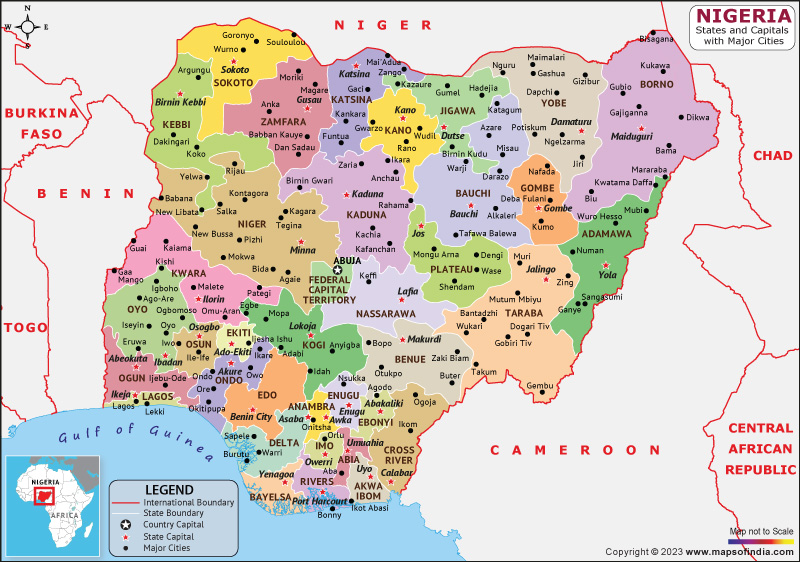Nigeria is a West African country which is officially known as the Federal Republic of Nigeria. Nigeria is a multi-ethnic country inhabited by over 250 nationalities who speak 500 different languages and all identify with a wide variety of cultures.
History:
The modern state of Nigeria grew out of British colonial rule in the 19th century and took on its present territorial form following the amalgamation of the Southern and Northern Nigeria Protectorates by Lord Lugard in 1914.
On October 1, 1960, Nigeria officially became an independent federation. It endured a civil war from 1967 to 1970, followed by a series of military dictatorships and elected civilian governments, before achieving a stable democracy with presidential elections in 1999.
Culture:
Different ethnic groups in Nigeria shaped the culture of the country. The three largest ethnic groups of the country are the Yorubas, the Hausas, and the Igbos. Traditionally, nomadic Fulani is found throughout West and Central Africa. The Fulani and Hausa are predominantly Muslim, while the Igbo are predominantly Christian, as are the Bini and Ibibio.
Late 20th-century musicians like Fela Kuti blended familiar cultural elements of various indigenous music with African-American jazz and soul to form Afrobeat, which in turn influenced hip-hop. JuJu music is percussion music that incorporates traditional ethnic Yoruba music, popularized by King Sunny Adé, of Nigeria.
Nigeria has many festivals, some of which date back to the period before the major religions entered this ethnically and culturally diverse society. Major Muslim and Christian holidays are often celebrated in ways unique to Nigeria or unique to locals.
Language:
In some parts of Nigeria, ethnic minorities speak more than one language. Due to the influence of British colonial rule which ended in 1960, the official language of Nigeria, English, was chosen to promote the cultural and linguistic unity of the country. The major languages spoken in Nigeria represent the three major African language families.
Geography:
Nigeria is situated in western Africa on the Gulf of Guinea, and lies between latitudes 4 degrees and 14 degrees north, and longitudes 2 degrees and 15 degrees East. The main rivers are the Benue and the Niger, which join and flow into the Niger Delta. It is one of the largest river deltas in the world and is home to vast mangrove forests in Central Africa.
Rugged highland lies to the southwest of Niger. There are mountains and hills to the southeast of Benue that form the Mambilla Plateau. This plateau extends across the border with Cameroon, where the highlands are part of the Bamenda Highlands in Cameroon.
| Official name | Federal Republic of Nigeria |
| Capital | Abuja |
| Population | 21.34 crores (2021) |
| Area | 923,768 sq km |
| Currency | Nigerian Naira |
| Religion | Muslims |
| Language | English (official language) |
| Major cities | Lagos, Kano, Ibadan |
FAQs
Q.1. What is the government structure of Nigeria?
Ans. Nigeria is a federal republic, where the executive power is exercised by the President.
Q.2. What is the climatic condition of Nigeria?
Ans. Nigeria has a varied landscape including tropical rainforest, Obudu plateau, Coastal plains and Mangrove swamps.
Last Updated on: April 18, 2023
